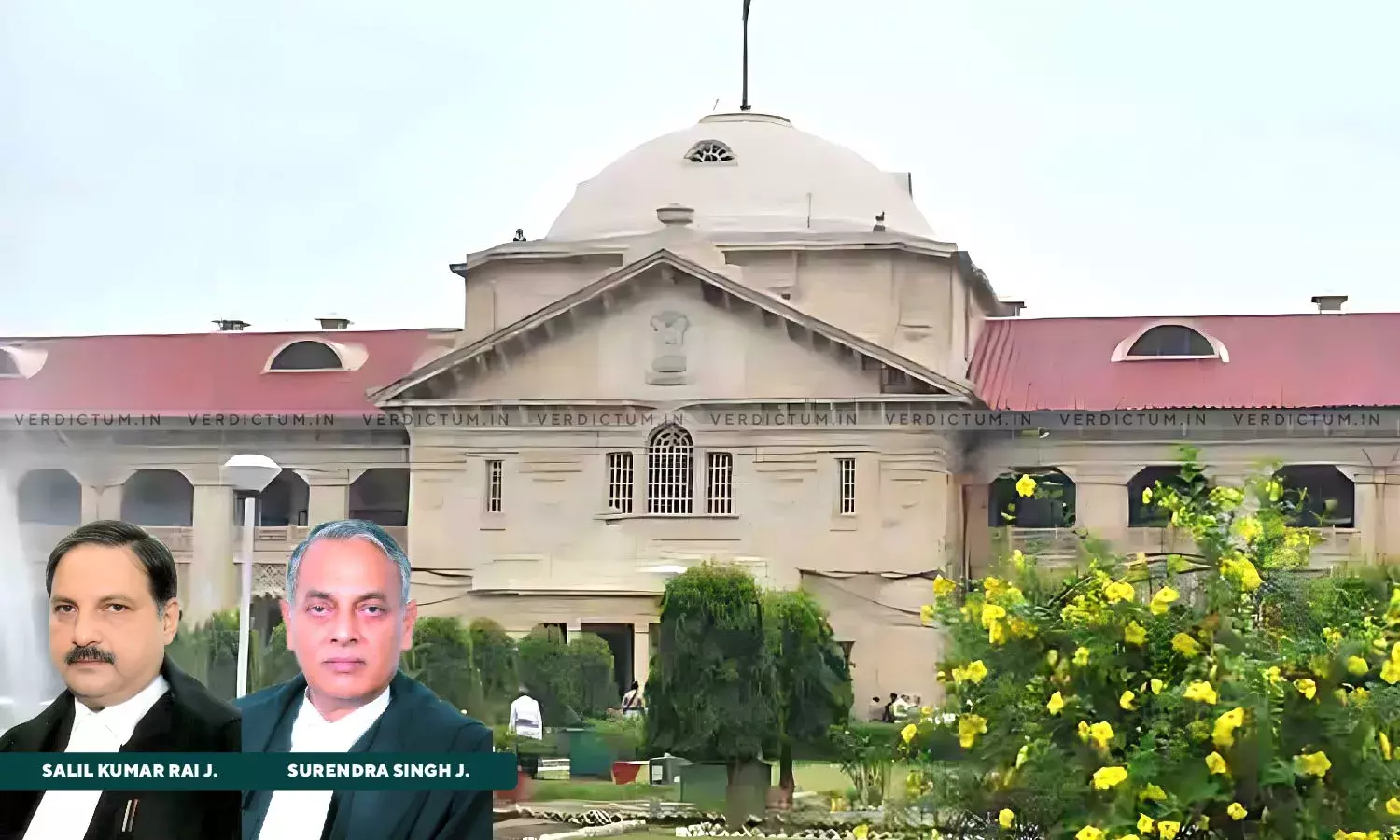Mere Construction Of Temple By Any Person On His Private Property Cannot Offend Religious Sensibilities Of Any Other Community: Allahabad HC

Citing lack of evidence to show that the petitioner by constructing a Temple had intended to insult any other religious community, the Allahabad High Court ruled that the right of the petitioner to construct a Temple on his private property is protected by Articles 25 and 26 of the Constitution and there is no evidence that the construction would have disturbed public order or was against morality or would be inimical to public health.
The Division Bench of Justice Salil Kumar Rai and Justice Surendra Singh observed that “Mere construction of a Temple by any person on his private property cannot offend the religious sensibilities of any other community”.
Advocate Roopesh Tewari appeared for the petitioner, whereas C.S.C., appeared for the respondent.
The brief facts of the case were that the petitioner, who claims himself as a reputed Hindu Saint of Shri Kalki Dham, purchased some property in the village and had planned to lay the foundation of Kalki Temple in the village. This led a representation by Inamur Rehman Khan, who claimed himself to be the National President of the Muslim Kisan Union, that the foundation ceremony of the temple would be opposed by the Muslims. A similar report was also submitted before the District Magistrate, Sambhal, apprehending breach of peace due to opposition by a religious community to the foundation ceremony, due to which the petitioner was restrained from doing any construction or laying the foundation without obtaining permission from District Administration. Consequently, an ex-parte order was passed restricting the petitioner from laying the foundation stone.
After considering the submission, the Bench found that there was no dispute regarding the title of the petitioner over the plots on which the proposed Temple is to be constructed, neither it was the case of the administration or any person that the petitioner has illegally encroached or has illegally acquired the plots.
Observing that the subject plots are not State lands, the Bench stated that it is not the case of the administration or of any religious group that the religious beliefs of the petitioner insult the religious or personal sensitivities of any person or community.
“So far as public order is concerned, the only ground stated in the order dated 30.10.2017 is that certain leaders of another religious community had informed the administration that the construction of the Temple was a new tradition and would be opposed by their community”, added the Bench while noting that there is nothing on record to show that any substantial section of the Muslim community was opposed to the construction of Temple.
The Bench clarified that mere objection by few persons belonging to other religions cannot be a ground to restrict the rights guaranteed under Articles 25 and 26 of the Constitution.
The Bench also stated that mere fact that a Masjid exists at a distance of 144 meters from the plot on which the Temple is proposed to be built by itself cannot raise an apprehension that communal peace or public order would be disturbed if a Temple is built on the plots.
“It is the duty of the administration to protect the fundamental rights of the citizen and in this case, the petitioner also has the right to use his property in a manner which is not prohibited by law”, added the Bench.
The Bench concluded by observing that simply because the plots on which the Temple is proposed is near State lands is not, by itself, sufficient to conclude that the petitioner intends to encroach upon the State land.
Cause Title: Acharya Pramod Krishnam Ji Maharaj v. State of U.P. and Ors. [Neutral Citation: 2023: AHC: 164038-DB]
Click here to read/download the Order

